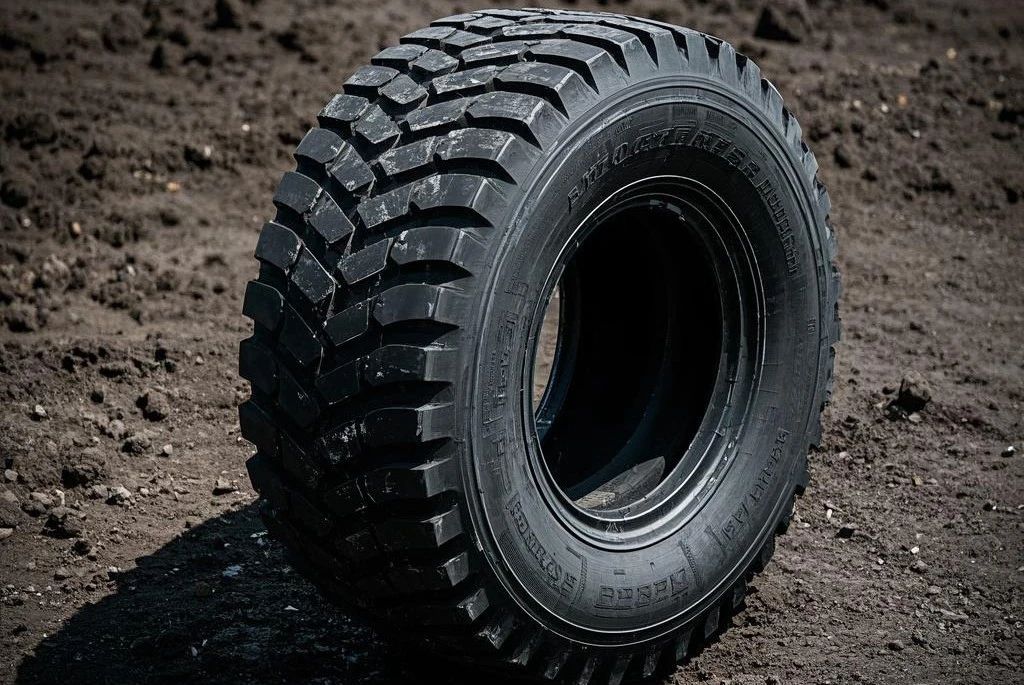In today's ever-changing technology, all walks of life are constantly exploring innovation to adapt to the growing market demand and environmental protection requirements. In the tire manufacturing industry, a revolutionary technology is quietly changing the face of the industry, that is, the application of RFID (radio frequency identification) technology in tires. In this technological change, Beontag, as the world's leading manufacturer of self-adhesive labels and smart labels, has successfully passed the strict requirements of tire giant Michelin with its outstanding technical strength and innovation capabilities, and jointly developed an RFID-enabled tire that can work normally after driving up to one million kilometers, which will also enable Beontag's technology to be incorporated into millions of Michelin's new commercial and passenger tires in the next few years.
Beontag's partnership with Michelin dates back to 2019, when the two companies started from scratch and worked together to develop a new HF RFID embedded tag. After years of dedicated research and development and months of rigorous reliability testing, they finally created an extremely durable and reliable RFID technology tire. This tire can not only maintain stable performance in harsh driving environments, but also work normally in a mileage of up to one million kilometers, which is undoubtedly a huge breakthrough for the tire manufacturing industry.
The core of RFID tires lies in their built-in RFID tags, which are composed of Pods and antennas designed by Beontag and Michelin, and use the most advanced chips and materials. This small tag contains huge power. It can track the manufacturing date, storage location, distribution, installation and replacement, retreading and other life cycle information of tires in real time, providing unprecedented convenience and traceability for tire manufacturers and car owners.
The role of RFID
For tire manufacturer Michelin, the application of RFID technology not only improves production efficiency, but also optimizes inventory management and reduces operating costs. More importantly, through RFID technology, Michelin can accurately track each tire to ensure product quality and customer satisfaction. For car owners, RFID tires mean a safer and more reliable driving experience, as well as more convenient and efficient tire maintenance services.
It is worth mentioning that Beontag's RFID tires also comply with the EU Ecodesign for Sustainable Product Regulations (ESPR) regulations that will soon come into effect. The regulations require Digital Product Passports (DPPs) to promote the sustainability and environmental protection of products. Beontag’s RFID-enabled tires not only meet this requirement, but also set a new benchmark for the tire manufacturing industry through their superior traceability and durability.

Suchi Srinivasan, Vice President of Beontag DTE, said: "We are very proud to share our achievements at the beginning of our cooperation with Michelin. As an innovation-oriented, problem-solving partner, we work hard to develop the technology and durability required for RFID-enabled tires to adapt to the needs of modern vehicles and their drivers. I look forward to continuing this journey with Michelin to drive business development and promote sustainability."
Michelin's RFID system designer Laurent Couturier also spoke highly of this cooperation: "RFID technology in tires plays a key role in optimizing operations and improving efficiency. The system enables accurate and automatic tracking of each tire from production to retreading or recycling. RFID tire tags improve industrial performance while meeting today's ecological requirements. The cooperation with Beontag has enabled us to develop an RFID tag that is both economical and meets environmental challenges, paving the way for new travel solutions."
How big is the market space for RFID tires
With the continuous development and popularization of RFID technology, and the increasing demand for intelligent and digital management in the tire industry, more and more tire companies are introducing RFID technology. The application of these technologies will not only be limited to the production and management of tires, but will also be extended to the full life cycle management of tires, such as repair, maintenance, and scrapping, making an important contribution to the sustainable development of the tire industry. In addition to Michelin, the following tire companies have already or plan to introduce RFID technology:
Zhongce Rubber Group Co., Ltd.: Zhongce Rubber is one of the largest tire manufacturers in China. The company has announced that its No. 1 series tires will be fully applied with RFID technology. By introducing RFID technology, Zhongce Rubber can achieve more accurate and efficient management of tires, while monitoring the production process of tires in real time to ensure that each process meets quality standards. Consumers can quickly understand the production information, quality status, etc. of tires by scanning the RFID tags on the tires, effectively preventing the emergence of counterfeit and inferior products.
Giti Tire: Giti Tire is a top ten tire manufacturer in the world. Its products are sold in more than 100 countries around the world and have been recognized by domestic and foreign automobile manufacturers. Recently, Giti Tire announced that it has begun to digitize its European truck and bus (TBR) product portfolio, embedding RFID chips into the sidewalls of new products to achieve full tire life cycle monitoring. According to the company, digital information allows identification at the level of individual units and guarantees that it is readable by all stakeholders and users throughout the life cycle of each tire, covering tire manufacturing, logistics, OEMs and distributors and wholesalers, fleet management, quality assurance, retreading and scrapping.
Other tire brands such as Goodyear, Bridgestone and Qingdao Soft Control have adopted RFID technology in tire manufacturing.
Based on the overall development trend of the tire industry, the industry is expected to maintain a steady growth trend in the next few years. Referring to Michelin's financial report last year, the company's annual tire sales volume is close to 200 million. If it is assumed that all Michelin tires have been managed by RFID this year, the demand for RFID dedicated tags will reach about 200 million. In addition, the rise of concepts such as "intelligent manufacturing and digital transformation" in China has also opened up broad space for the future development of the tire industry, indicating that this field will usher in significant growth potential.
This paper is from Ulink Media, Shenzhen, China, the organizer of IOTE EXPO (IoT Expo in China)







